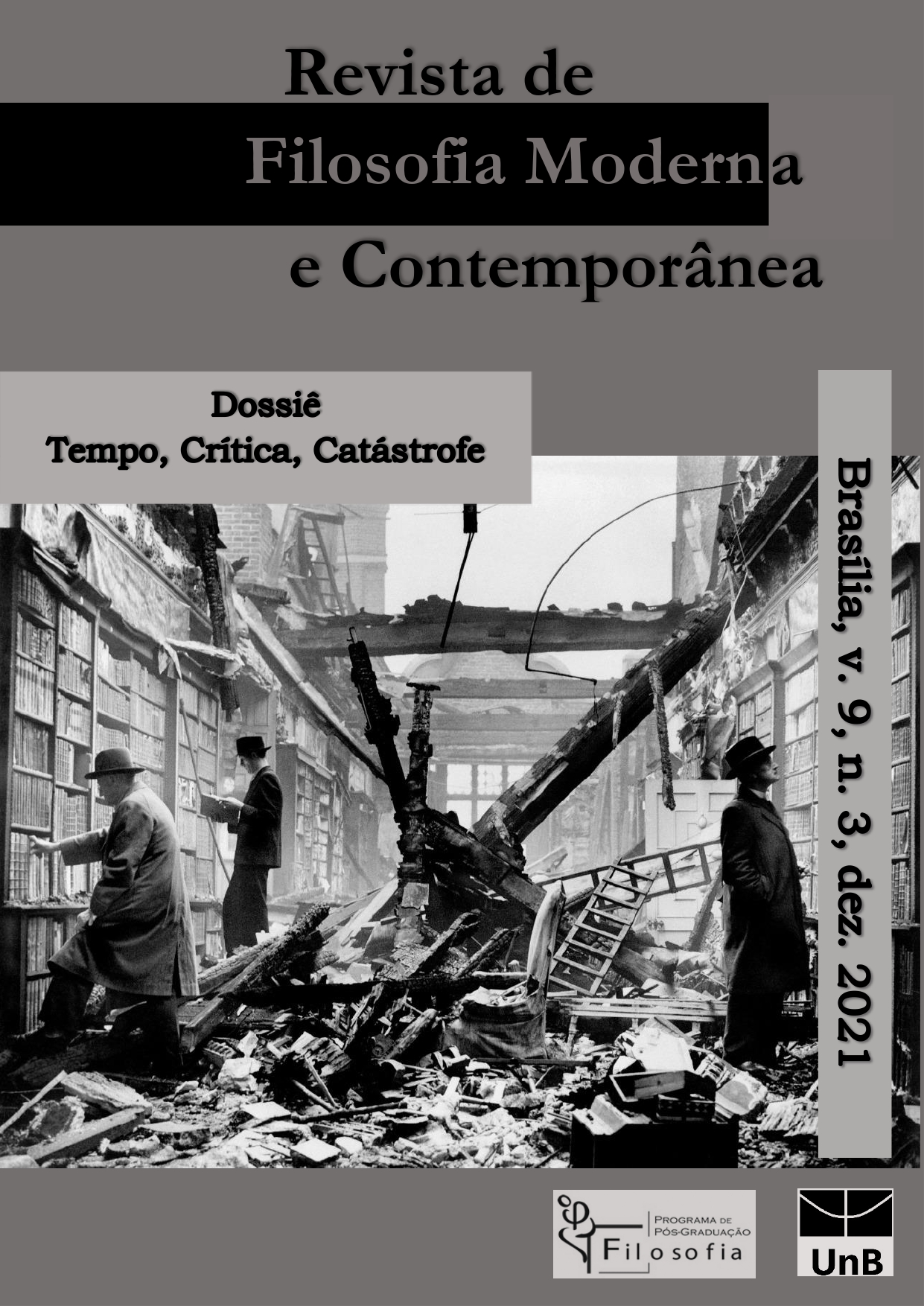Time, Crisis, Catastrophe – In Defense of Plurality in Philosophical Research
DOI:
https://doi.org/10.26512/rfmc.v9i3.42993Keywords:
Ricœur. Adorno. Psychoanalysis. Autonomy. Reason.Abstract
The confrontation of philosophy with other forms of knowledge is not something new. Since its establishment as a specific discourse in Plato, the so-called "philosophy" tries to define itself in confrontation with other discourses in practice in the city. We can say that the history of philosophy is not exhausted in the history of its doctrines and systems, that is, it cannot be minimally understood without taking into account the clash of philosophy with other forms of knowledge, since both philosophy and other forms of knowledge react to the broader historical constellation in which they are inscribed and, at the same time, partly provoked. In this article, we shall examine two contemporary examples of the confrontation between philosophy and the human sciences: the thoughts of Paul Ricœur and Theodor Adorno, and, more precisely, the transformations that their thoughts have undergone through confrontation with Freud's thought. Both authors faced, each one in his own way, a demand that remains the one of our time: philosophy can and must fight against evil; it can neither ignore it, nor pretend to dissolve it in a specious argumentation.
Downloads
References
ADORNO, T. W. “Educação após Auschwitz”. In: Palavras e Sinais. Tradução de Maria Helena Ruschel. Petrópolis: Vozes, 1995.
ADORNO, T. W., HORKHEIMER, M. Dialética do Esclarecimento. Tradução de Guido de Almeida. Rio de Janeiro: Jorge Zahar Editor, 1985.
RICŒUR, P. De l’interprétation – essai sur Freud. Paris: Seuil. 1965.
Downloads
Published
How to Cite
Issue
Section
License
Copyright (c) 2021 Journal of Modern and Contemporary Philosophy

This work is licensed under a Creative Commons Attribution-NonCommercial-NoDerivatives 4.0 International License.
Copyright for articles published in this journal is retained by the authors, with first publication rights granted to the journal. By virtue of their appearance in this open access journal, articles are free to use, with proper attribution, in educational and other non-commercial settings.


